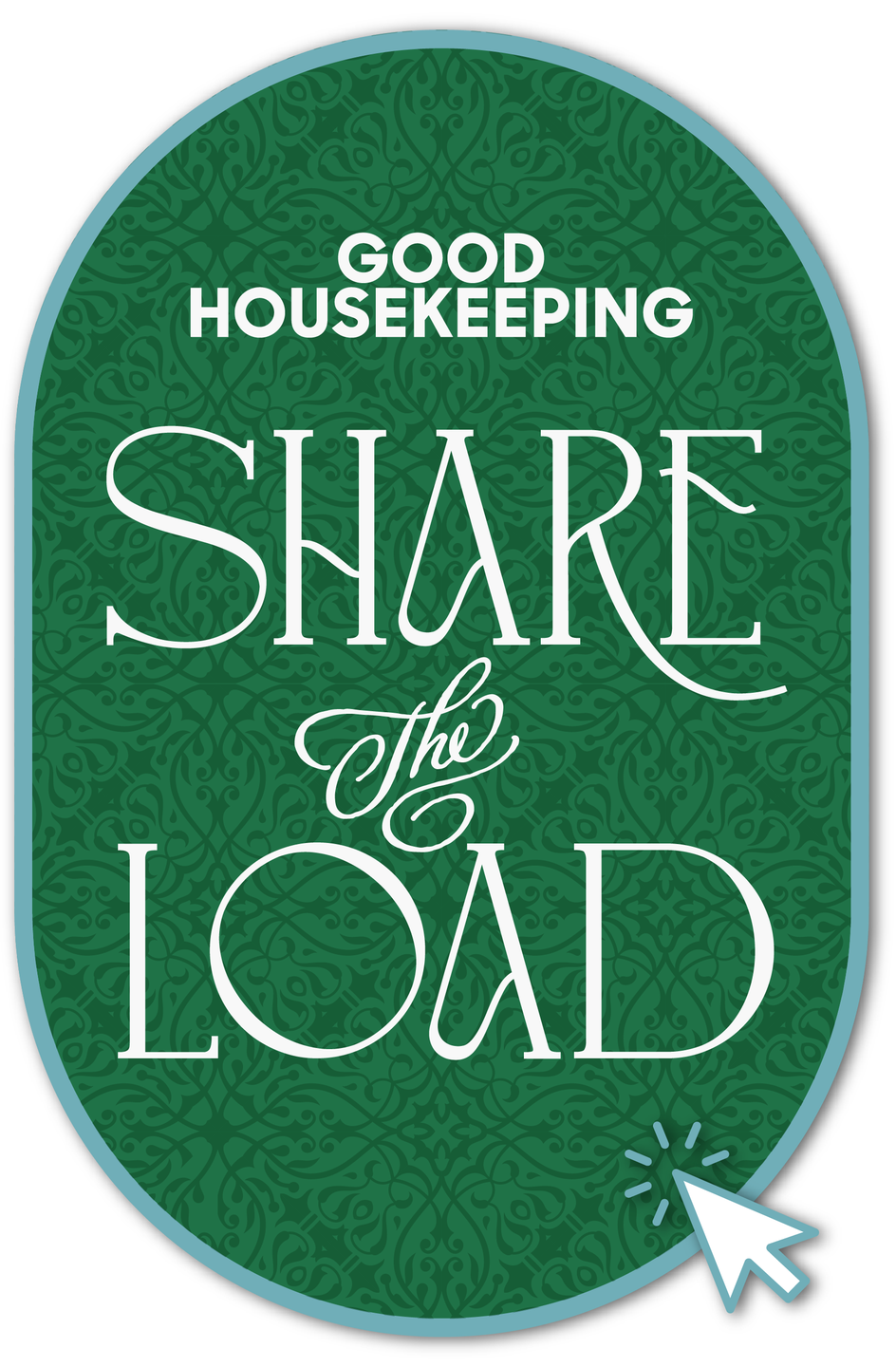Should You Pool Finances With Your Partner? Finance Experts Explain

"Hearst Magazines and Yahoo may earn commission or revenue on some items through these links."

A 2022 survey of 1,000 women done by the Alliance for Lifetime Income found that just over half of women, or 59%, take on the primary responsibility for the household finances, and 51% also have ownership over the family’s investments.
Just how these families go about combining and managing these finances is personal; there is no one-size-fits-all solution. In fact, more than half of American couples, or 57%, have some separate financial accounts. Thirty-four percent have a mix of joint and separate accounts and 23% have completely separate finances.
Still, as with all other household labor, it’s easier to stay on track when the systems for managing money are intentional. It’s important to talk to your partner, discuss goals and preferences and get on the same page financially. You’ll want to fully compare your options and carefully weigh the pros and cons to see what works best for you. When you start these conversations, you can talk over these three ways to handle combined finances and how they work.
Half-Combining

Let’s say you and your partner start out like most couples with separate accounts. However, you’re sharing a home, splitting bills, planning trips and just basically doing life together. One nice option is to keep your separate accounts but make sure you have those accounts at the same bank.
“My wife and I keep separate checking accounts,” says Lee Huffman, founder of Bald Thoughts. “She gives me a flat amount each month toward our bills that are charged on my credit cards.”
In addition, you can open a third account as a joint account. Use this third account to “half-combine” finances, allowing both of you to transfer funds to the account for the rent or mortgage, utility bills, savings and other shared expenses.
You’ll each continue receiving your paychecks in your individual bank accounts that can be used for personal expenses such as hobbies, beauty and self-care, subscriptions and other costs. Then, you’ll just transfer the money for shared expenses to the joint account.
With all three accounts at one bank, you and your partner can easily transfer funds and even connect the accounts so you can get a clear picture of your overall financial situation.
Benefits of Half-Combining
You still maintain some financial independence.
Half-combining makes it easier to manage shared expenses.
There’s a smaller likelihood of money secrets.
Drawbacks to Half-Combining
You have to keep up with more than one account.
It could still be challenging to get on the same page financially.
Fully Combining

Another option is to fully combine finances, which is basically throwing all your money into one pot. With combined finances, there is no “mine” or “yours.” In this scenario, you may have one main checking account and a savings account. Both names are on any bank accounts and you budget whatever you earn together as one income source.
“Couples with a joint bank account have shared interest and responsibility in their finances,” says Kevin Payne, the budgeting enthusiast behind FamilyMoneyAdventure.com. “Even if one party is appointed to pay bills and budget money, both partners have access and can track spending and savings goals.”
Completely combining finances means you’ll have to be very transparent about your money habits. If one of you is a saver and the other is a spender, the saver may worry about the other person spending some of the money that’s supposed to be used for bills or upcoming expenses. It’s also harder to keep secrets with everyone in one account — including “good secrets,” such as a birthday gift or surprise getaway.
To maintain some autonomy, you can also decide to each have a monthly “free spend” amount. This is money that can go toward personal expenses like coffee, a book, takeout for lunch or another expense so you don’t have to discuss every small personal purchase with your partner.
Advantages to Fully Combining
You can see everything in one place.
“Mine” and “yours” becomes “ours,” which can crease a sense of closeness.
Drawbacks to Fully Combining
Challenges arise if you can’t agree or compromise on how money should be handled.
Both partners have to account for each other’s financial mistakes.
Fully combining could amplify communication issues (if it doesn’t help improve communication).
Keeping Totally Separate Accounts

The final option is to keep separate bank accounts and not make any efforts to combine finances. This may make sense if you and your partner were already managing money well with your own accounts before the relationship. This also works better if both of you are earning an income outside of the home.
With separate finances, you should still discuss money and set goals together. You may assign each person with the responsibility of paying a specific bill each month. Or, perhaps it’s understood that one person pays for outings and restaurant meals most of the time.
“My husband and I have separate accounts and always have for more than a decade,” says Dori Zinn, founder of Blossomers Media. “There aren’t any secrets; we have access to every account (thanks, 1Password!) and we’re also authorized on all of our accounts.”
Brynne Conroy, author of The Feminist Financial Handbook, notes that having separate accounts makes things easier if you eventually split up. “We can’t ignore the fact that divorce rates have hovered around 50% for the past 40 years, and we insure against things that are far less common,” Conroy says. “Having that separate account means, in the worst case, you can at least afford to stand on your own two feet.” She also notes that having separate accounts wouldn’t hurt even if you do stay together, since it just adds to each person’s individual autonomy.
Benefits of Keeping Separate Accounts
You each have more autonomy and control over personal spending.
It’s easier to manage premarital debts separately, if you wish.
It’s simpler to plan for gifts and other surprises.
Drawbacks to Keeping Separate Accounts
It’s more difficult to access the other person’s account.
This system doesn’t foster the same closeness.
It can be harder to get on the same page with regards to saving and debt-payoff goals.
Other Factors to Consider When Combining Finances
Determining whether to combine finances or not as a couple will cause you to look closely at your situation. There are some circumstances where combining may make sense and others where it won’t. Consider these factors as well.
The amount of debt. Discuss each of your debt and who is responsible. If you don’t mind helping your partner pay down their student loan balance, make sure this is clearly communicated. Either way, be honest about how you want to handle debt, especially balances accrued before the relationship.
Different incomes. Unless you and your partner work in the same position at the same company, odds are one of you earns more. Be transparent about how that makes each of you feel and how you should budget accordingly. Maybe you decide to combine so you’re not thinking about who earns more or less. Or, maybe you decide it’s fair that the person earning more pays a higher percentage of the bills utilizing a joint account.
How you’ll share financial responsibility. No matter how you set up your accounts, you’ll want to determine who is responsible for paying certain bills, transferring money to savings, making investments and so on. Work together to share these responsibilities and check in regularly to hold each other accountable and keep up with the status of your finances.
While no one plans to divorce, married couples also may want to consider how finances would be handled and protected during a separation. Catherine Collins, author of Moms Got Money and cofounder of MomsGotMoney.com, says she was a strong advocate for having combined finances when she was married. “When I unexpectedly got divorced, it was a long process to separate our accounts,” Collins says. “As the one who primarily managed bills and finances in the family, I was able to navigate this change with confidence. However, after talking to many divorced women over the past year, I realized managing money was a skill many didn’t have, and it caused them much anxiety.”
So, Should You Fully Combine Finances?
If you and your partner have already established your careers and have separate assets and debts, combining finances may seem like a headache. On the other hand, combining could help you get on the same page financially and settle your views on saving and spending.
Ultimately, your goal should involve being open and transparent about every aspect of your financial situation, no matter how your accounts are set up. The best way to see what works best for you is to try one of these methods. Once you put it into action, you’ll see firsthand how it works for your household and you can always make changes when needed.
Five Couples Share Their Financial Secrets
There’s no “right way” to handle money as a couple. Here’s how these pairs have simplified their finances together.

“My partner and I use the You Need a Budget app, which tracks our bills and expenses and allows us to create a customized budget that considers our individual financial goals and priorities. The app categorizes our expenses, setting monthly limits and offering real-time feedback on our spending habits. We can also set up notifications for upcoming expenses, which ensures we never miss a payment or lose track of our financial obligations.
We regularly schedule 'money dates' where we review our progress, discuss any financial concerns, and adjust our budget as needed. This approach has made a world of difference in our relationship, allowing us to maintain our financial autonomy while still working together as a team.” —Karel Williams, Hampton Bays, NY

“Talking about what you envision finances to be like is a great place to start. If you can dream together, it will help you find the 'why' that pushes you to stick to your plan, whatever it may be. What’s worked for us is having several joint accounts for various categories of expenses as well as separate checking accounts for our own variable expenses that we have 100% control over. We have the same amount deposited in our variable expenses, regardless of individual income, but that may be different for each couple. It’s a lot of accounts, but this has worked the best for us after lots of trial and error.” —Jessica Reynoso, Gilbert, AZ

“We have come to a compromise: One person’s income covers our monthly bills and savings. The other person’s income covers our play, spending and investment money. When one or both of us receive additional amounts such as raises, bonuses, residuals and/or commissions, it automatically goes to the spending/saving account. We decide on which big-ticket items will be purchased together.” —Chantay Bridges, Los Angeles

“Pure equality isn’t always possible. For example, if one spouse makes significantly more income than the other, it may not be fair for both to pay a 50/50 split of the bills. One way to resolve this issue is to divide the bills based on amount. For example, the spouse making more money could cover large one-time bills such as rent, while the spouse making less could cover bills such as utilities, which are generally spaced out over the course of the month. The most important thing is determining what works best for you and your family.” —Andy Kalmon, CEO of Benny, Madison, WI

“My husband and I have a budget spreadsheet for tracking what expenses we have and how much money we have incoming. We do not have any joint bank accounts (joint accounts was a hard no for me in my early years as a stepmom, and now it’s stuck), but we do have one joint credit card as well as our own credit cards. Neither of us are big spenders, but if we are buying something that is quite a bit of money, we have a conversation about it. I think what people could learn from us is simple: Have the conversations about money. Was it awkward at first? Absolutely. Neither of us grew up with money, and now we have enough to live comfortably, but it comes with being honest about what’s coming in and what’s going out.” —Alicia Krasko, Ann Arbor, MI
Photographs: Mike Garten. Prop styling: Alex Mata. Illustrations: Adobe Stock Photo (5).
You Might Also Like

